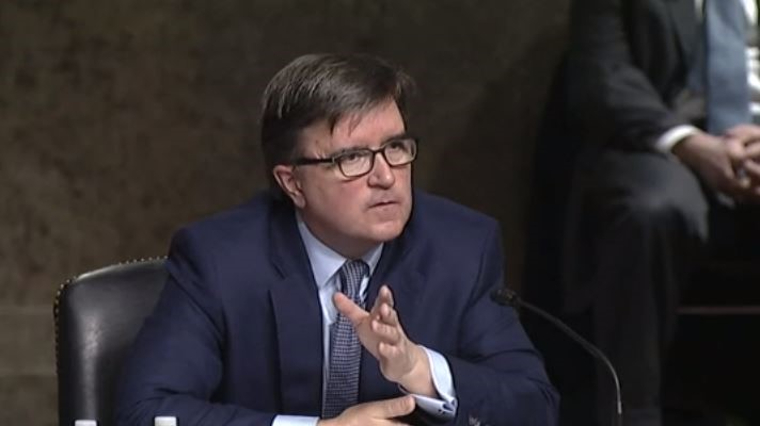AMBASSADOR O’BRIEN: This is Jim O’Brien. I mean, thanks for the question. Again, we start from the premise that sanctions are one tool, but not all the tools that we have to try to change the behavior of individuals. And I think it’s always possible to find a case that makes us appear to be applying the standards inconsistently. What I’d say is we apply our policy in a way that reflects the reality of each individual situation, and I don’t think it’s fair to say that we avoid – we make decisions based on who has money or who has power. Our largest sanctions program – the largest in U.S. history – is directed at Russia, which is earning $80 billion a month from energy sales. And we encourage those sales, because that energy is important particularly in the developing world. So it’s not a case about money or no money.
We also designate individuals who participate in human rights abuses regardless of whether they are seeking to travel or have the money to buy property or anything else. It’s whether we feel this is the right tool to highlight the abuses that we think inhibit the ability of people to live in a democratic and law-abiding society. And that’s the test.
Now, sometimes we can use other tools to try to achieve similar results. Sometimes the sanctions are the proper tool. But whether we pick the right individuals to designate, whether they remain the right individuals, whether we have other ways or we should be looking at other people, these are questions we ask ourselves all the time as we review the programs. So it’s not a one-time snapshot and it certainly is not decided by any one factor.
MODERATOR: And unfortunately that’s all the time that we have for today. I know we have additional questions in the queue but we’ll have to host you again sometime in the future. And I want to turn it back over to Ambassador O’Brien and Director Mullinax. Do you have any final words?
AMBASSADOR O’BRIEN: It’s Jim O’Brien. I’d just say I really do welcome the chance to have the exchange, and perhaps we can do this again at some time over the next couple of months, maybe with one of our colleagues who works directly on the relationship with Zimbabwe. Because for me, our policy gets better when we have to explain it, and I think as several of the questioners suggested, we could do a lot better job of making sure that our views reach decision-makers in the region but also the people of Zimbabwe. So I welcome the questions, especially the tough questions, and look forward to doing this again sometime.
MR MULLINAX: And Jim Mullinax here. Let me just echo what Ambassador O’Brien shared. I very much appreciate the opportunity to engage and to respond to some of these good questions about the purpose of our program and what we’re trying to accomplish and how we’re going forward with that. I do think that we will benefit from additional conversations like this and I look forward to the opportunity to join similar events like this in the future. Thank you.
MODERATOR: Thank you very much. That concludes today’s briefing. I’d like to thank U.S. Department of State Sanctions Coordinator Ambassador James O’Brien and the Director of Sanctions Policy and Implementation Jim Mullinax for speaking with us today, and thank you to all of our journalists for participating. If you have any questions about today’s briefing, you can contact the Africa Regional Media Hub at [email protected]. Thank you very much.
AMBASSADOR O’BRIEN: Thanks, Andrea. Thank you, everyone.
MR MULLINAX: Thank you.
(256 VIEWS)


